These domains are interconnected and shape our everyday lives, but they provide new opportunities for individuals, businesses, and governments to advance, enhance, and achieve success. This discussion will cover how these fields interact, overlap, and affect each other, ultimately paving the way for a prosperous, sustainable, and intelligent future.
—
1. Finance: The Backbone of Innovation
The financial sector has undergone a dramatic transformation with the advent of emerging technologies, AI, and decentralized finance. The traditional financial systems are being disrupted by innovations like cryptocurrency and blockchain. These innovations are altering the landscape of financial markets, investments, and digital exchanges.
With blockchain, for example, provides a decentralized ledger system without the need for centralized intermediaries like banks. This reduces transaction fees, increases transparency. Moreover, cryptocurrencies like Bitcoin and Ethereum provide individuals with alternative investment avenues and challenge traditional banking systems.
Another noteworthy trend in finance is the rise of artificial intelligence and machine learning. These technologies enable financial institutions to improve decision-making, manage risk, and enhance customer service. The role of AI in finance is becoming more pronounced, with automated decision-making processes shaping portfolio management. Financial advisors can now leverage AI tools to offer better predictions, personalized recommendations, and optimized solutions.
—
2. Technology: Shaping the Future
Technology, a driving force behind all sectors of society, is revolutionizing how we connect, work, and innovate. From smartphones and wearables to artificial intelligence and quantum computing, technology is reshaping every aspect of our lives.
Health technology innovations such as telemedicine and wearable health devices are improving patient care and access. These technological advancements empower patients monitor their health, access medical services remotely, and make informed health decisions.
The integration of AI in technology is also leading to breakthroughs in automation, problem-solving, and communication. AI-powered systems are redefining business practices in diverse sectors, including healthcare, manufacturing, and customer service. For instance, robotic surgery, diagnostic tools, and virtual assistants are transforming industries that simplify tasks, enhance decision-making, and optimize resources.
—
3. Intelligence: The Human Brain Meets Artificial Systems
The concept of intelligence, whether biological or artificial, plays a critical role in how we solve problems, make decisions, and interact with others. Human intelligence has been augmented through advancements in education, technology, and global connectivity. Meanwhile, artificial intelligence (AI) has introduced a new dimension to the concept of intelligence.
AI has made significant strides in fields like natural language processing, machine learning, and data analysis. These systems mimic human cognition and are revolutionizing industries through predictive analytics. AI is already contributing to fields like healthcare, autonomous vehicles, and robotics, providing solutions that were previously thought impossible.
However, the fusion of natural intelligence and machine learning opens up debates on ethical dilemmas, data privacy, and autonomy. It is essential to ensure that AI works for the benefit of society
—
4. wsoslot88 : The Role of Technology and Intelligence in Wellness
Health and wellness have become increasingly intertwined with technology and intelligence. Wearables like fitness trackers, telehealth tools, smartwatches, and health monitoring apps are allowing people to track their health, manage conditions, and make better lifestyle choices. AI in healthcare, is improving diagnosis, treatment plans, and patient outcomes.
Remote medical consultations have expanded access to healthcare services in remote areas and underserved communities. This technology is breaking down geographic barriers for people who face difficulties in receiving timely treatment. Additionally, advancements in genetic research are allowing for more targeted treatments and preventative measures.
—
Conclusion
Ultimately, the fusion of these four transformative fields—finance, technology, intelligence, and health— is creating a world of opportunities As the integration of finance, technology, intelligence, and healthcare will continue to drive progress and innovation. Adapting to these changes will be important for individuals, businesses, and governments to stay competitive, relevant, and sustainable in the future.
In today’s rapidly evolving world, finance, technology, intelligence, and health.
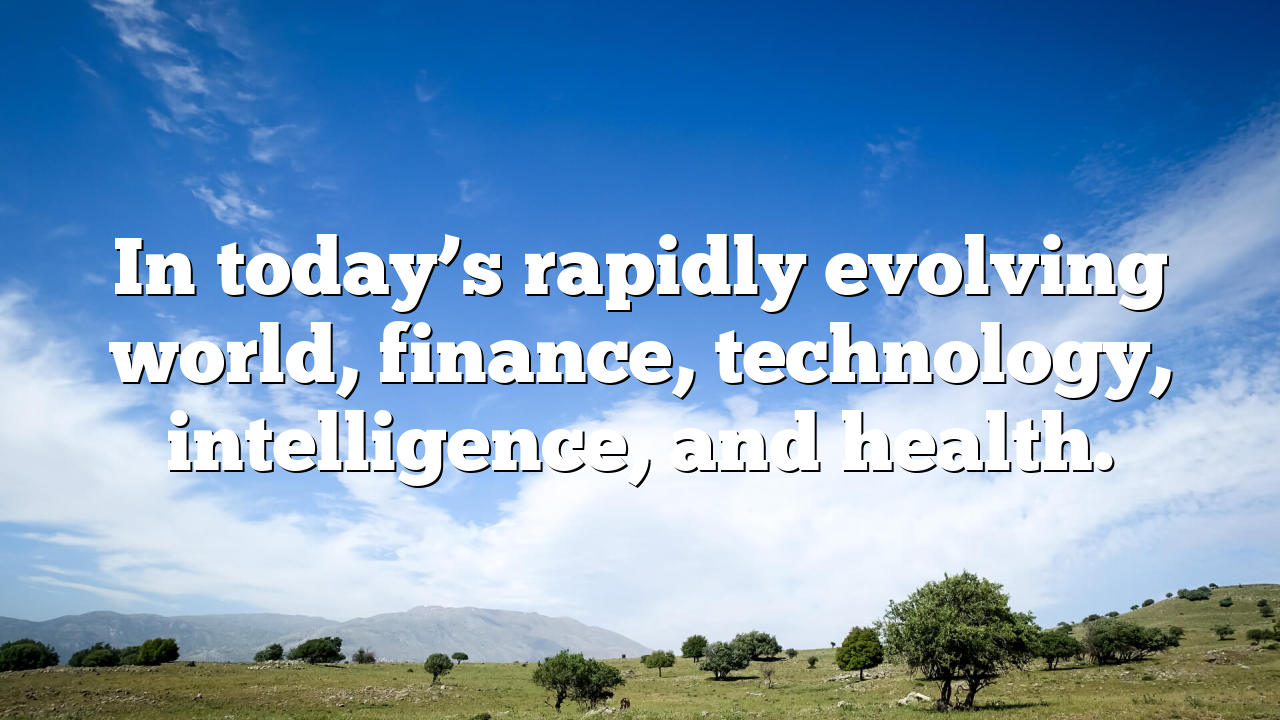
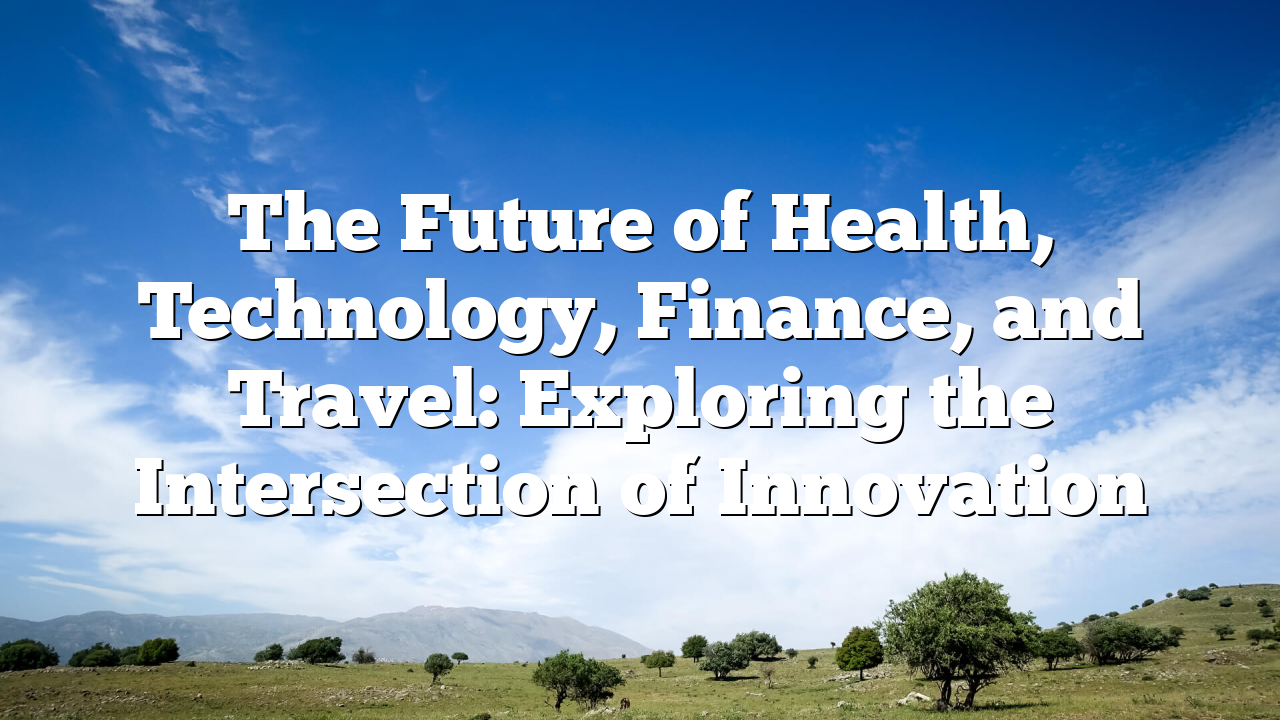
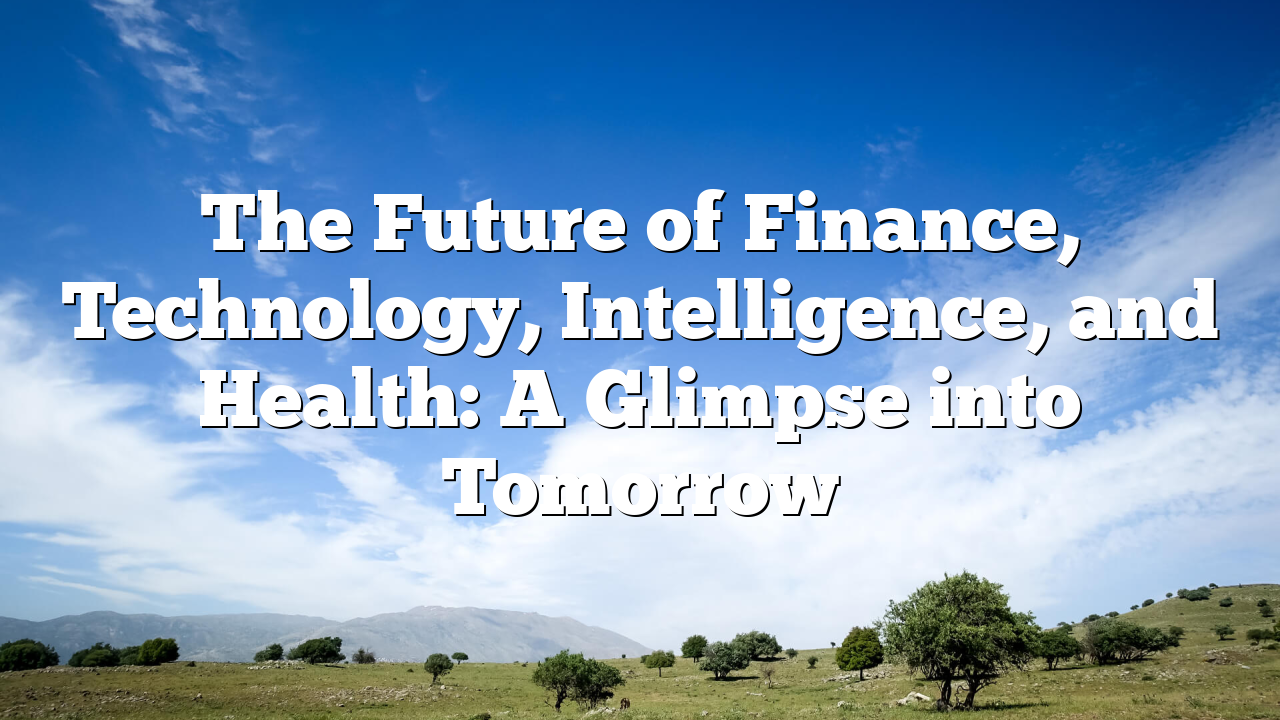
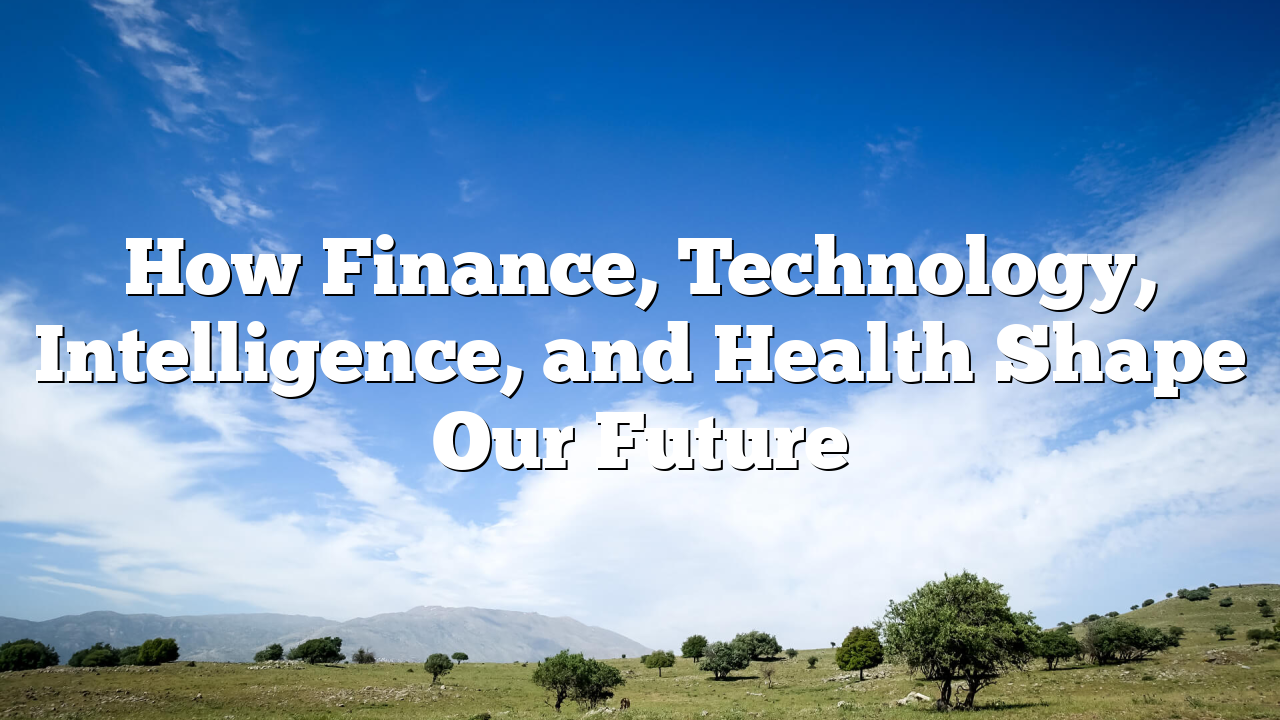

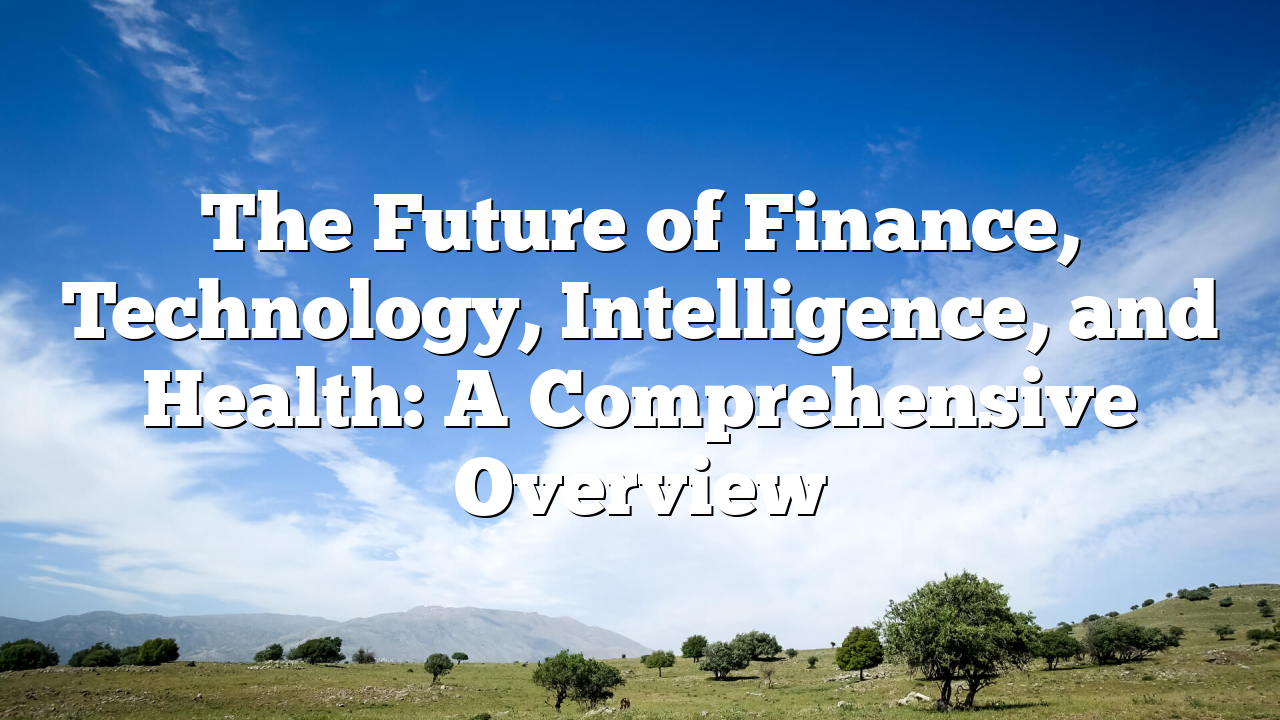
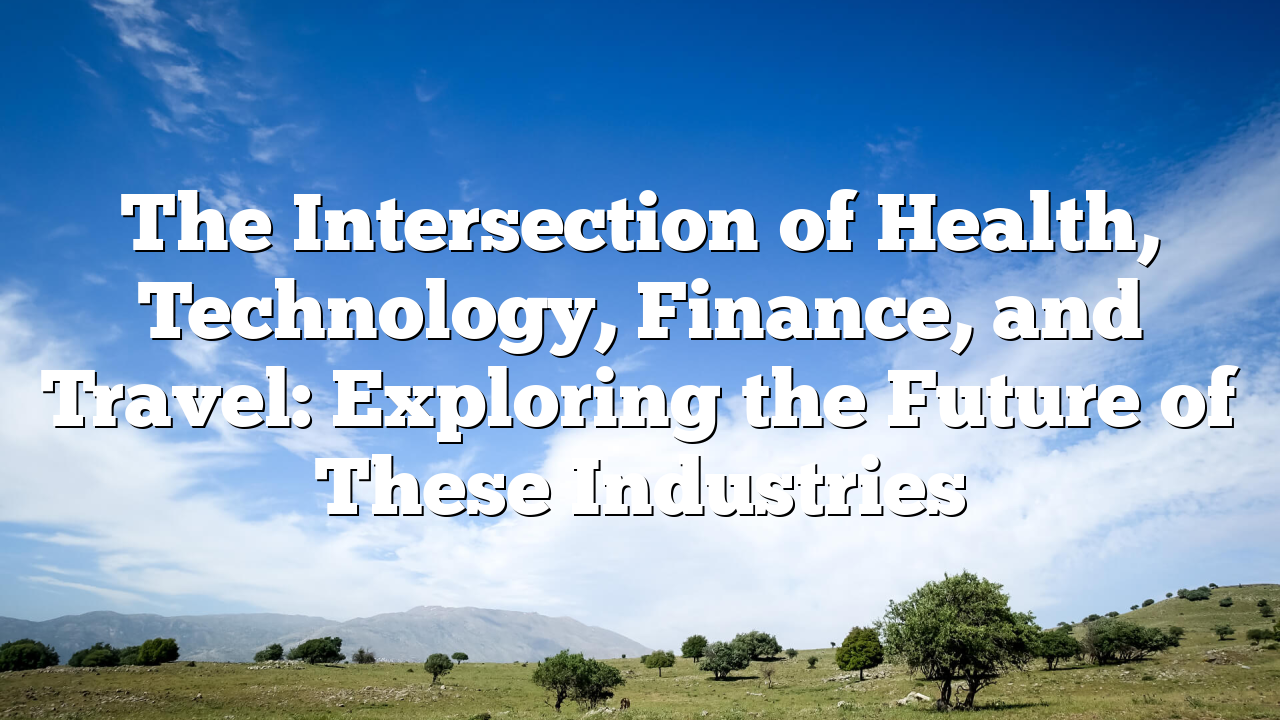
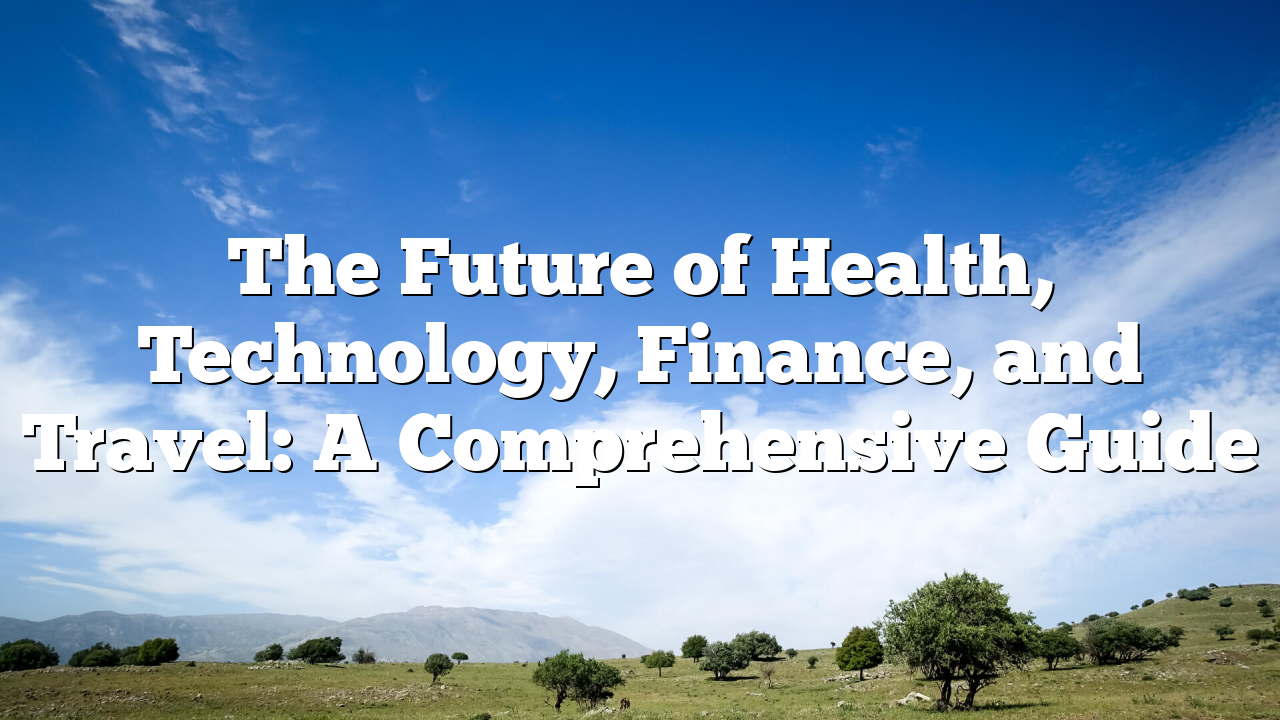
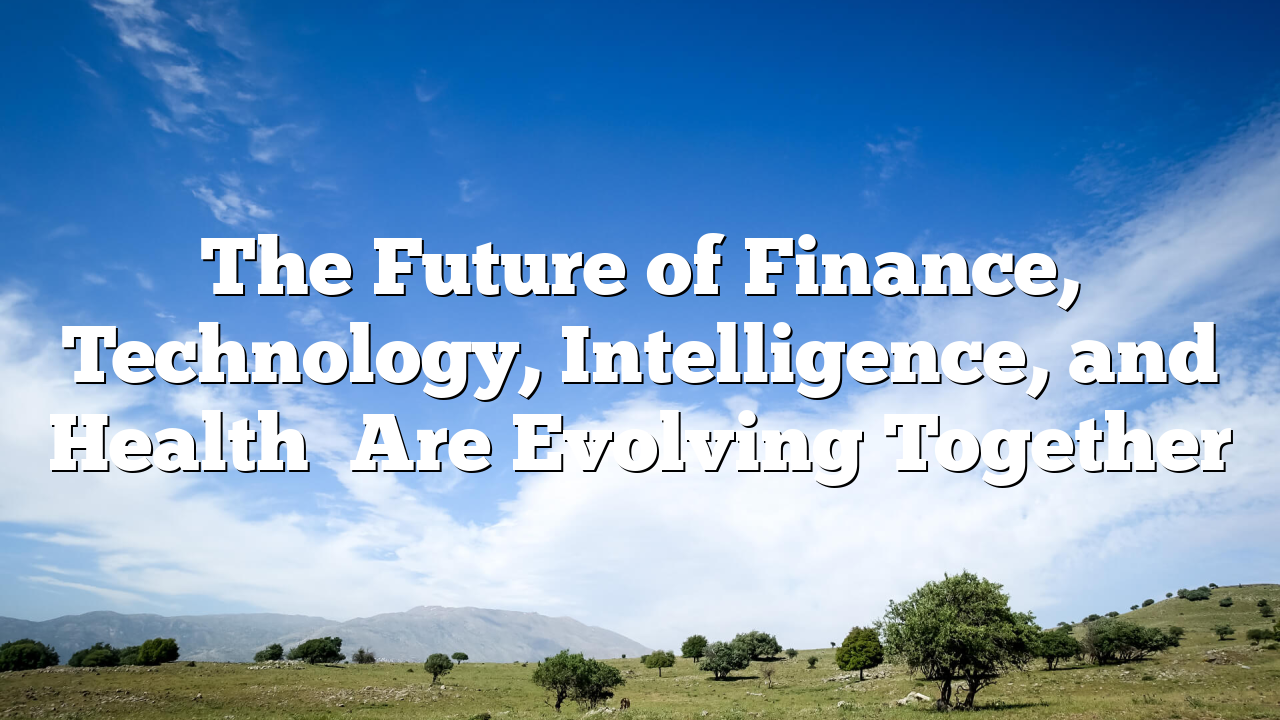
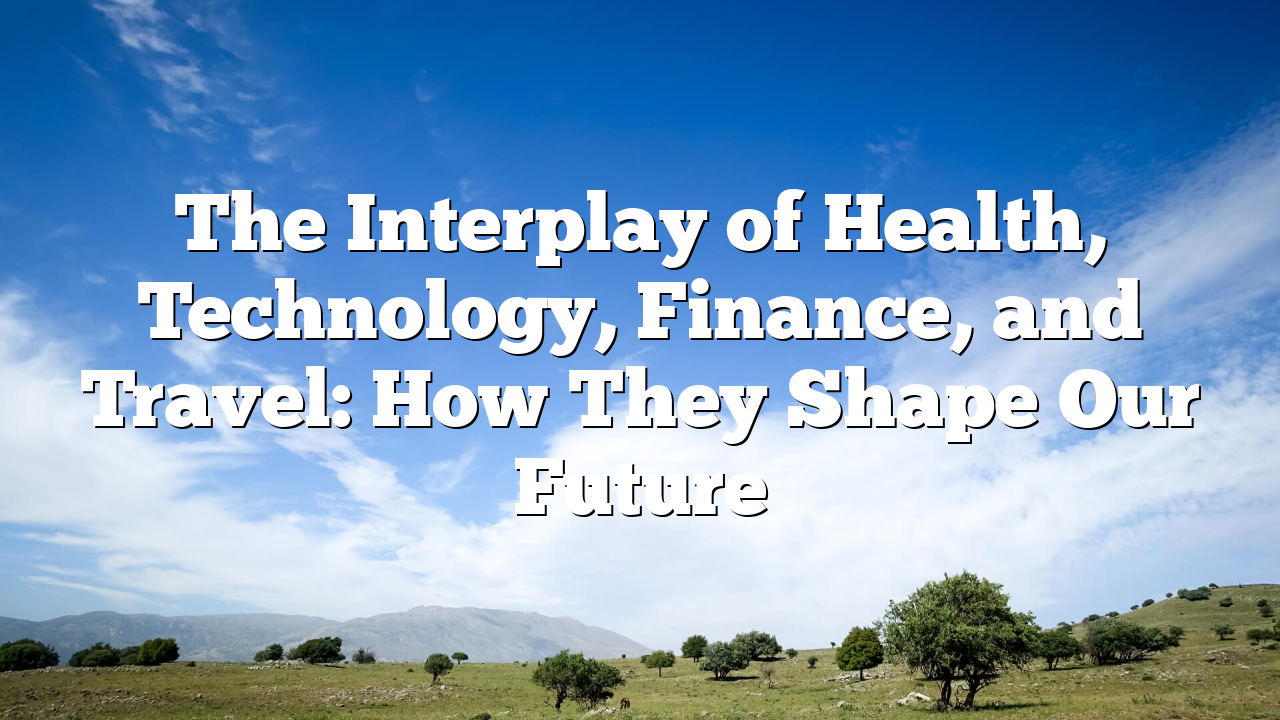
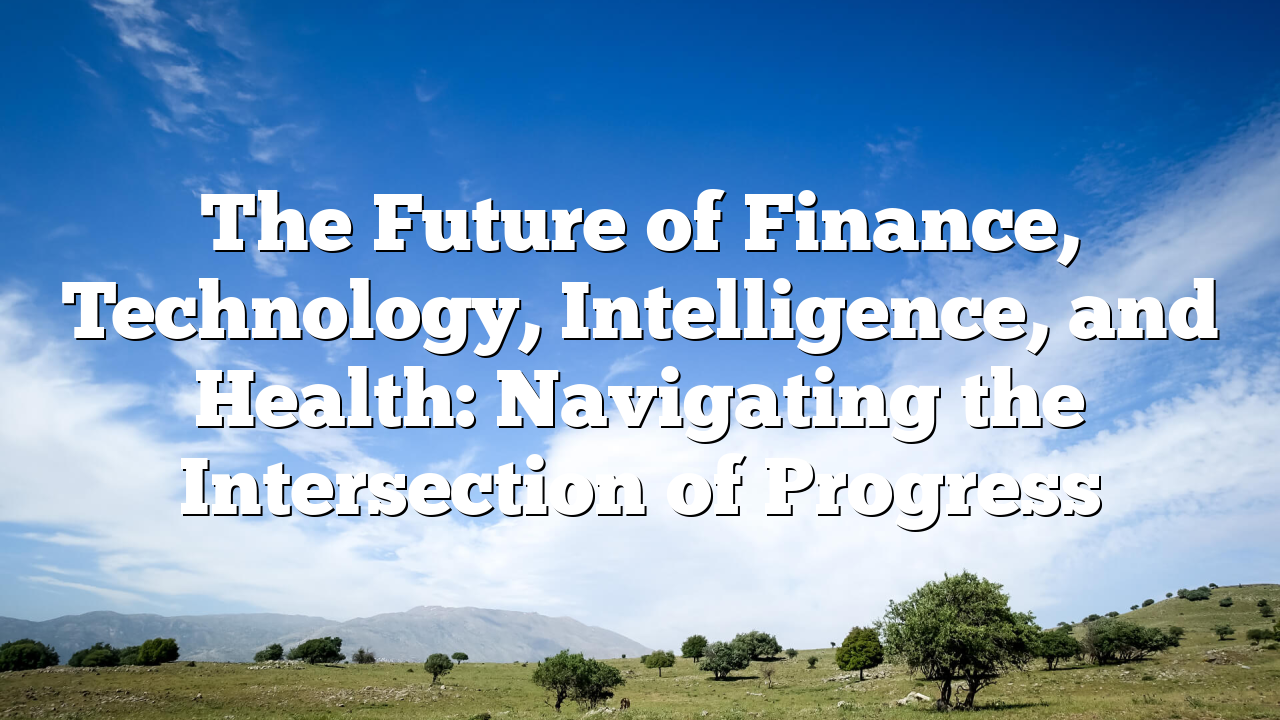
Leave a Reply